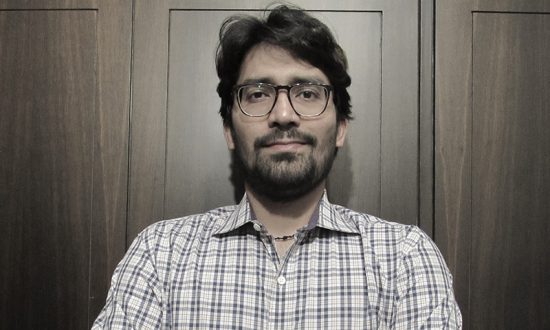Mangal is the Co-Founder and CEO of Key Education Foundation. Over the last 5 years, Mangal has donned almost every responsibility in the organisation: from being a Program Manager to managing the delivery of the Teaching Learning Material to the schools. Over the last 2 years, Mangal is engaged in building the Tier 2 leadership team in the organisation and closely mentors and provides strategic direction to the 5-member Leadership team of Key Education Foundation. Mangal is also responsible for engaging and investing in the external Advisory team and other evangelists of Key Education Foundation. Over the last 10 years, Mangal has been a teacher, a principal, a guide for students from low-income communities. He has worked for prestigious not for profits in India like Teach for India, Akanksha Foundation and The Nudge Foundation.
The early years (0 to 8 years) are the most remarkable period of growth and development in a child’s lifetime. During these years, the fundamentals of learning are laid through the framework of Pre-Nursery, Lower Kindergarten, and Upper Kindergarten. Getting the foundations right has huge long-term benefits, such as better school learning and higher educational attainment, which usually result in significant economic and social gains for society. According to multiple studies, high-quality early learning, early childhood education, and early childhood development (ECD) programs reduce dropout and repetition, thereby improving outcomes at all levels of education.
In a country like India, with 139 million children under the age of six years, focusing on Early Childhood Education becomes pivotal for accelerating overall growth of the country. Considering the fact that these millions of children are going to join the workforce in the future, they need to be educated to grow into responsible citizens. Investing in Early Childhood Education is a fruitful investment for any developing country, particularly in a highly populated country like India. A strong Early Childhood Education leads to better learning outcomes, including higher civic responsibility and lower delinquency rates, among others.
In India, Early Childhood Education remains highly unregulated, scattered, and unfocused, with a lot of potential for improvement. The Integrated Child Development Services (ICDS) is the Government of India’s main service model for preschool education. It is a centrally sponsored and state-administered early childhood development program that gives pre-school education as one of six basic services (together with vaccination, health check-up, referral, food supplementation, growth monitoring, and nutrition and health education) through 1.37 million Anganwadi centres. However, these centres are mostly staffed by a local woman helper (known as Anganwadi helper), who are responsible for nutrition, health, and immunisation of not only the children in the community but also lactating and pregnant women. With such a heavy workload, the learning component is gradually deprioritized. Learning in most Anganwadis is limited due to lack of structured curriculum, unskilled teachers, and unclear learning goals. This strengthens parents’ reluctance in considering Anganwadi as a serious option for their children.
The majority of government schools in India start from class 1, proving that early childhood education is not given priority in the educational framework. Anganwadis are inefficient in ensuring that these children are adequately ready to take on higher education effectively. There are an increasing number of private schools which are taking up the role of imparting early childhood education. Nearly half of those enrolled in ECCE programs are in the private sector, with the proportion being much higher in urban areas. The majority of children in the lowest wealth quintile (51%) attend Anganwadi centres, while the majority of children in the highest wealth quintile (62%) attend private facilities. Unfortunately, the quality of ECE is accessible to only a limited few in society.
The state of schooling for this age group in India right now is split between two extremes. Preschools in urban areas teach various subjects from Grades 1 and 2 curriculums, such as the alphabet’s letters and numerals up to 100. On the other hand, in rural regions, Anganwadi education is limited to storytelling and the teaching of a few songs and poetry. In reality, as a society, we are uncertain of the matter and method that ought to be used while teaching this age group. Our preschools are a reflection of this ambiguity.
Over the last couple of years, India has witnessed the emergence of e-learning apps. These apps are increasingly used by parents as they are designed specifically for Indian preschoolers aged 2 to 6 years and have proven to be quite effective for early learning. These apps, however, are digital and therefore, not only do they lack the physical learning component necessary for this age group, they also increase children’s dependency on television and mobile phones.
Early childhood education has long been acknowledged for its importance and benefits. Preschool education, which was formerly only an option, has lately gained a lot more significance and understanding. The newly introduced National Educational Policy (NEP), which is aligned with the SDG goals, has set a bold goal of universal access to quality Early Childhood Education for every child in India by 2030. Focus has been driven toward improving the instruction quality and skills of the Anganwadi workers along with imparting training using digital means to empower the workers to focus on learning. The NEP stresses reading, writing, and arithmetic in line with its Sustainable Development Goal 4, which relates to quality education.
But how can NEP be translated into an effective ECE curriculum remains to be seen. It is now to be understood and observed what change it brings in these children’s lives.




